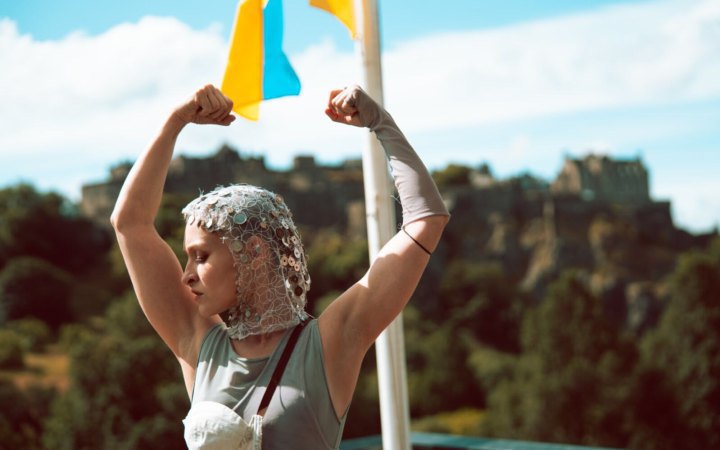The Kharkiv Nafta theatre has been around since 2018. It was started by Nina Khyzhna, Artem Vusyk, and Tetyana Holubova.
"We're going for a horizontal structure without any dictatorship, but with clear values. We make socially responsible art, keeping a balance between freedom and discipline. After the full-scale invasion, part of our team joined the army, we became more serious, but we still use irony and humour as weapons to help us endure reality," says director, actress and co-founder of the theatre Nina Khyzhna.
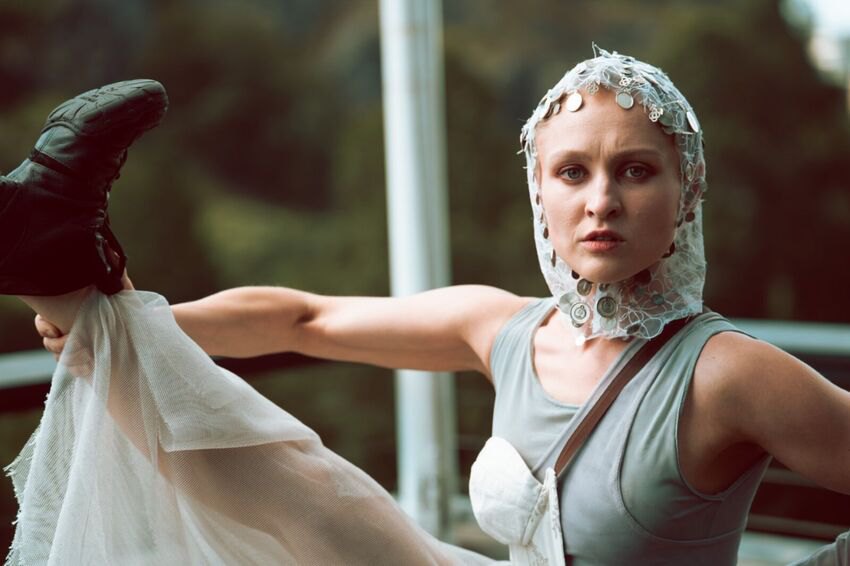
Over the years, the theatre has changed, sought new themes, and experimented with forms. However, the full-scale invasion has radically changed everything. With its onset, part of the team founded the volunteer headquarters Culture Shock (Oleh Kadanov Headquarters). Nafta actors Yaroslav Podshyvalov, Oleh Kadanov, Dmytro Tretyak, and actress Tetyana Tumasyants also joined the army.
“So, of course, we have changed, grown up, our performances have become more serious and sadder, but despite everything, we actively use irony and humour in our work. This is our important tool and weapon that helps us endure this reality," Nina continues.
The Edinburgh Festival Fringe (from on the fringe — ‘on the periphery, outside the official’) is an open performing arts festival that first appeared in 1947. Its main idea was to become an ‘alternative’ to the official programme of the Edinburgh International Festival: at that time, eight theatre companies arrived uninvited and simply performed in the suburbs (fringe).
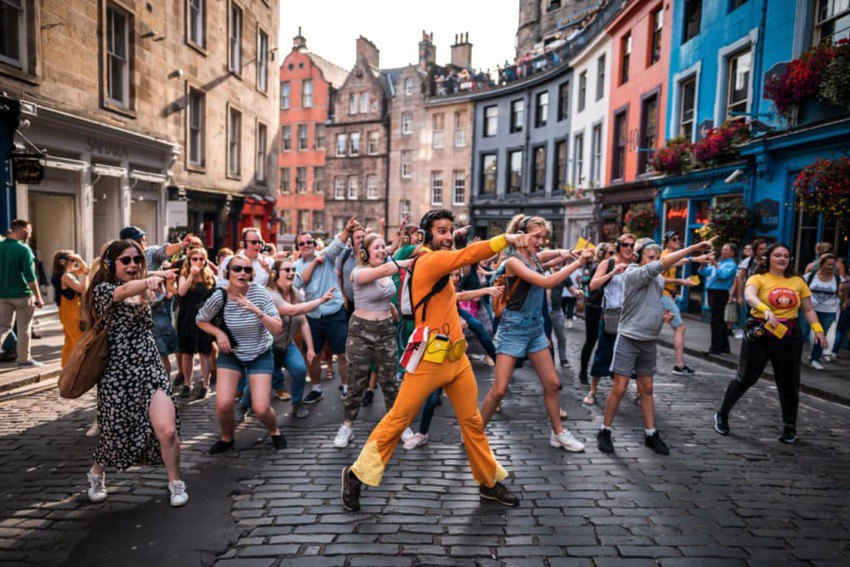
Today, Fringe is the largest arts festival in the world: more than 3,000–4,000 shows take place every August, ranging from theatre and stand-up comedy to contemporary dance, circus, performance art, and music. The main principle of the programme remains openness. Anyone can participate — there is no special selection committee. The only condition is to register your show in the programme and find a venue. Participation in the Edinburgh Festival Fringe was proposed to the Nafta Theatre by Iryna Nirsha, head of the Performing Arts department at the Ukrainian Institute.
"The official programme and the Fringe programme, which is more free and vibrant, coexist during the festival. Everything you can imagine can be found there — from experimental dark cabaret, family circus performances, comedy, stand-up, performance art, drag shows, dance performances to large-scale dramatic theatre productions on the big stage. In one day, I saw a dance troupe from New Zealand, a cabaret from Germany, a musical from London, and a Brazilian psychological drama. Such diversity is truly impressive," shares Iryna Nirsha.
The one-person show Someone Like Me was based on the real stories of Ukrainians aged 9 to 91 who recounted their experiences of living through the war. In particular, the director was interested in physical experiences, the sensations engraved in the body, and how plastic arts can be used to convey the experience of such catastrophic events as the full-scale invasion of Ukraine.
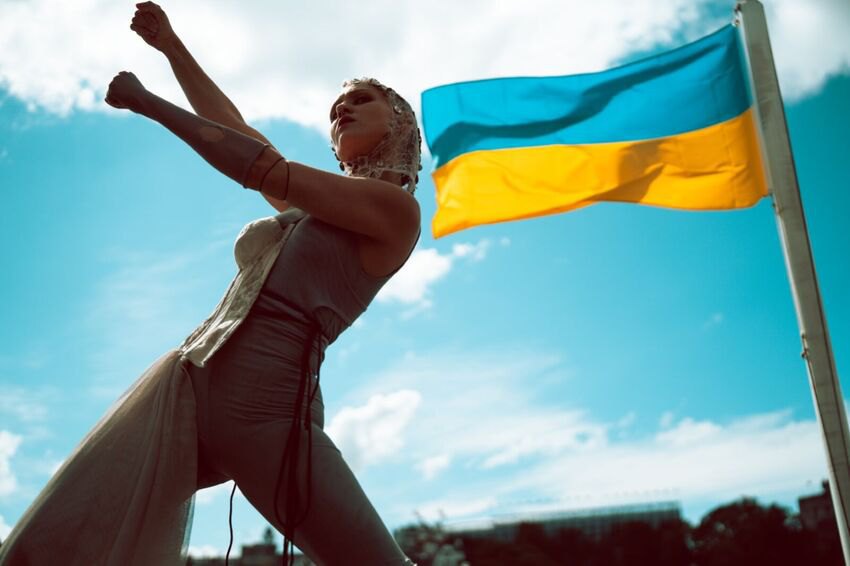
“The process of creating the play was preceded by a research phase,” explains Khyzhna. “Together with playwright Lyuba Ilnytska, we studied the theme of physicality in war. We conducted interviews with military personnel, civilians, children, and even my 91-year-old grandmother. Despite the differences in their experiences and physical experiences, all the stories are united by the fact that we are all witnesses and insiders of one war, one common tragedy and common catastrophic events that we are going through as a single society. We have all heard explosions, our bodies have trembled from the impact of shells and been shaken by shock waves, we all know what it is like to listen intently to the sounds, to lie awake at night listening to the sounds of shahids, to hide in the corridor, to feel with your body which side of you is Russia, because that is where the danger is, where the missiles are flying at you. We are united by the shared physical experience of war, which has become part of our bodies, our collective body. That is why we invented a fictional incorporeal being that travels through the bodies of Ukrainian men and women, gathering their experiences into a common tapestry of a single History," says Nina Khyzhna.
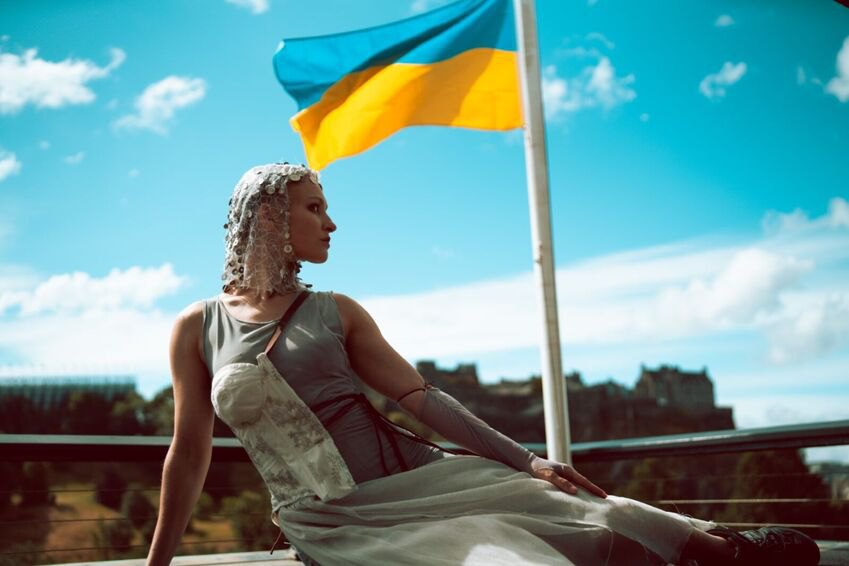
The Fringe programme at the Edinburgh Festival offers a huge variety of genres, forms and performances, so capturing the audience's attention becomes a difficult artistic task.
“There is fierce competition here, and the audience is growing gradually. It was valuable for us to hear feedback after the performances and read the reviews left by the audience, because they were emotional and gave us the feeling that we are not alone and that we are seen in the world. They often said that this is an experience that cannot be conveyed by the news or other types of media. That it reveals to them the emotional and physical components of the reality in which we live. They also noted the aesthetics and artistic form of the performance, which seemed to surprise them given the reality in which it was created," the director continues.
She also notes the European audience's great fatigue with the theme of war, which leads artists from Ukraine to constantly search for new forms and languages of expression. Therefore, she says, when she saw representatives of different countries and cultures among the audience who understood and empathised with the artistic language of the Ukrainian collective, it particularly inspired and moved her. But despite this fatigue, Nina Khyzhna emphasises how important it is for Ukrainian artists to occupy their niche on international platforms and bear witness to their experience of war, despite everything.
“It is very important for us, Ukrainians, to speak up and secure our place in international creative communities. To call things by their proper names, to bear witness to Russia's crimes, to share our experiences, to talk about our culture, to introduce it to the world. Because Ukrainian theatre is still not sufficiently represented in the world. Because if we don't do it, others will do it for us, and they will describe this war and engrave it in history. And they are already doing so. It is especially dangerous when Russians do this, presenting their performances, say, about love between Ukrainians and Russians at major international venues. And yes, of course, these are contacts, acquaintances and visibility. This is about our cultural and political presence."
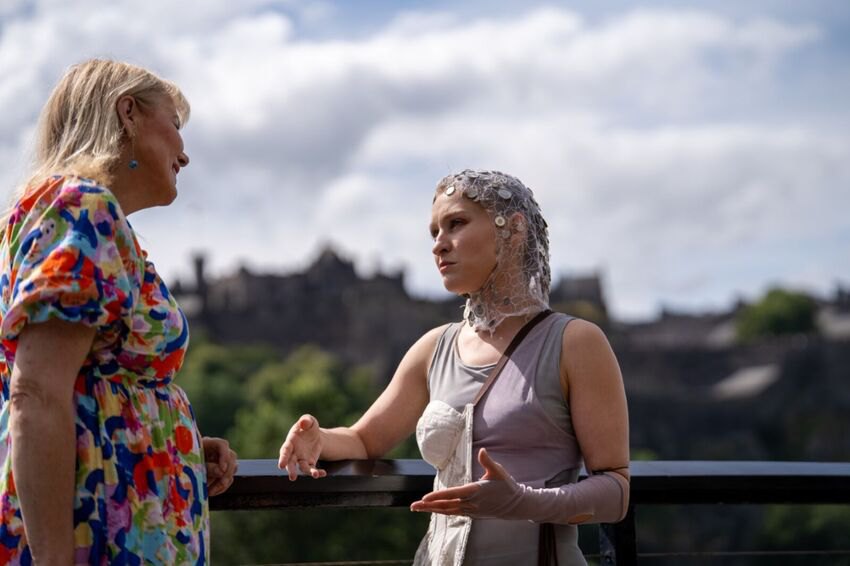
Ukrainian themes were also evident in other projects at this year's Edinburgh Festival Fringe: for example, in the play Refuse, written by a British playwright, directed by a Ukrainian and performed by a Ukrainian-British cast.
Refuse is a new drama written by Lucy McIlgorm and presented by Just Bcoz Productions. It tells the story of Max, a garbage collector in a Ukrainian town whose work is an integral part of community life, especially on the eve of the Russian invasion. The title has a double meaning: from the words ‘refuse’ and ‘to refuse’ — raising the question of who and what is considered ‘refuse’ and what it means to resist. This short work has been highly praised — it was briefly mentioned among the best on BBC Radio 4 and by Bloomsbury Publishing.
‘This performance is light and profound, it creates vivid and understandable portraits of Ukrainians, while allowing the audience to feel our experience as something that could easily happen to them. Vasyl Sydorko, who plays the main character, is wonderful on stage, even improvising at times, while performing in English for an hour,’ says a representative of the Ukrainian Institute.
A choir of Ukrainian refugee children who moved to Edinburgh after the full-scale invasion also performed on the large stage for 1,200 spectators. Their project was called Life in the Suitcase. Parallel to the Edinburgh Festival, the Military Tattoo festival was held at a large stadium, where Ukraine was represented by the Navy Orchestra, which generally increased attention to Ukraine in the city.
‘Many Scots expressed their support for Ukraine and sincere interest in our scene to me. Ukrainian flags are flying all over the city, near the Parliament building — you really feel solidarity here,’ concludes Iryna Nirsha.










